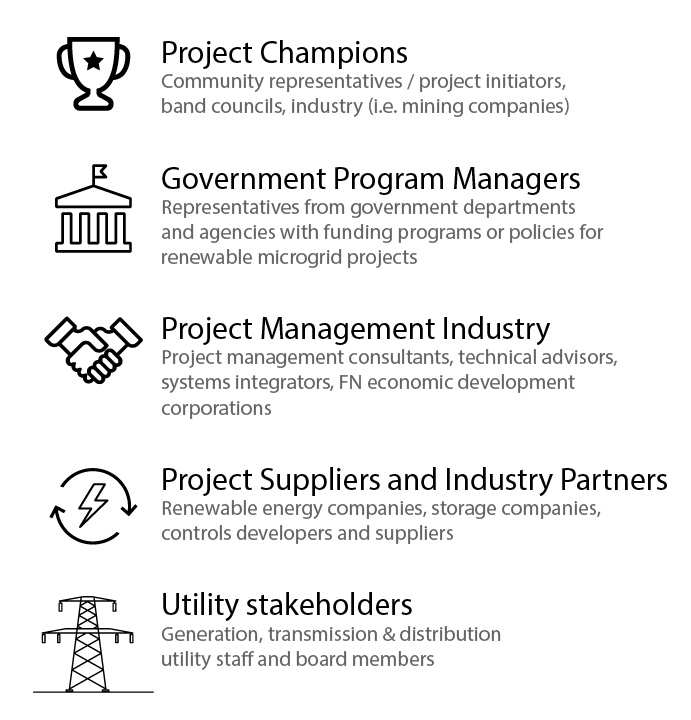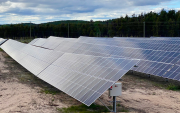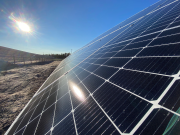Remote communities in Northern Canada and the Arctic region rely heavily on fossil fuels that are imported over large distances — by trucks via winter roads and increasingly, with the deterioration of winter roads due to climate change, via air. These communities are predominately First Nation, Inuit and Métis.
Diesel-fuelled generators are the most common source of electricity generation for remote communities. Over 90 million litres of diesel were imported annually between 2004 and 2008 to 100 of Canada’s remote communities, according to Natural Resources Canada’s “Status of remote off-grid communities in Canada.”
Potential of renewable energy generation in remote communities
Renewable energy technology can reduce the use of diesel fuel in remote communities. Wind, solar, micro-hydro, geothermal and biomass are substantially cleaner and reliable forms of power generation. These technologies stabilize the long-term, fluctuating energy costs associated with fossil fuels and eliminate the operational and maintenance costs of running diesel generator systems. They also reduce air pollution, greenhouse gas emissions and soil and water contamination from fuel spills. Most importantly, renewable energy systems enable each community to take ownership and control of their local energy needs — ensuring affordable, reliable and clean access to energy. Transitioning from imported fossil fuels to renewable energy is a fundamental shift back to using the resources traditional lands have to offer.
Long-term savings from investing in cleaner energy systems can be used to address the unique challenges experienced by remote communities: local economic development, affordable housing, health care, education, preserving cultural values and the environment.
One community that has made recent strides towards a fully renewable energy system is Kodiak Island, Alaska. Its community-owned energy cooperative generates 95 per cent of its electricity from local and renewable resources. In 2014, the island experienced no outages. With the implementation of this system, the cost of renewable electricity is one-third the cost of electricity from diesel generators. This renewable source of energy has already helped a local seafood company expand its market for salmon.
There is much happening in Canada too. A handful of First Nation communities are developing energy projects, either on their own or in partnerships. The Hupascasth First Nation set up a 6.5-megawatt run-of-river project in their traditional territory. The Lutsel K’e Dene First Nation and Collville Lake in the Northwest Territories have both implemented solar PV systems.
What is the Pembina Institute doing
The Pembina Institute has a long track record of working with remote First Nation communities across Canada that are keen on reducing the economic, social and environmental costs of their energy use. An essential component of our work is to develop community energy baselines — how much of what type of energy is used where, what are the costs to the community and what is the carbon pollution associated with burning fossil fuels. We then work with the community to develop an energy plan that will reduce the consumption and impact of fossil fuel energy.
In 2013, we organized Canada’s first Renewables in Remote Microgrids (RiRM) conference in Toronto. Government, industry and the academic community came together to discuss technical barriers to the integration of renewable energy into small and isolated electricity grids. While the conference helped share experience and bridge the technology gap been industry, government and academia, it did not tackle the systemic social and economic challenges and opportunities of integrating renewable energy technologies into existing microgrids.
This year we are pleased to announce the 2nd biennial RiRM conference; hosted by the Government of the Northwest Territories in Yellowknife and supported by Bullfrog Power and organizational support from Natural Resources Canada.

RiRM 2015 will span two days, from September 16-17. A pre-conference day on Sept 15 will allow participants to experience various courses on renewable technologies and software, a tour to a remote community that has an installed renewable energy system and there will also be a few design training sessions. The conference is expected to attract 150 delegates including community leaders, government representatives and program managers, project managers, technology consultants and suppliers, and electric utility stakeholders.

We will utilize MaRS Advanced Energy Centre’s Systems Change and Design Thinking approach. It ensures delegates come away from the conference with some integrated systems thinking and the understanding that innovation is a tool to advance the deployment of these systems. While engineers tend to think of technical solutions, policy makers are confined to policy arenas. The emphasis is to approach solutions from a systemic perspective. Not until we make progress in all these areas will we see advancement.
In practice, community representatives will share their experiences with electric utilities, government, academia and financiers by presenting completed or ongoing community projects with lessons learned and specific social and economic barriers to implementation. Participants are encouraged to define pilot projects and programs that may be replicated and scaled into larger initiatives.
For more information on the conference, visit the webpage. Online registration is available here. Sign up soon and reserve your spot today.









